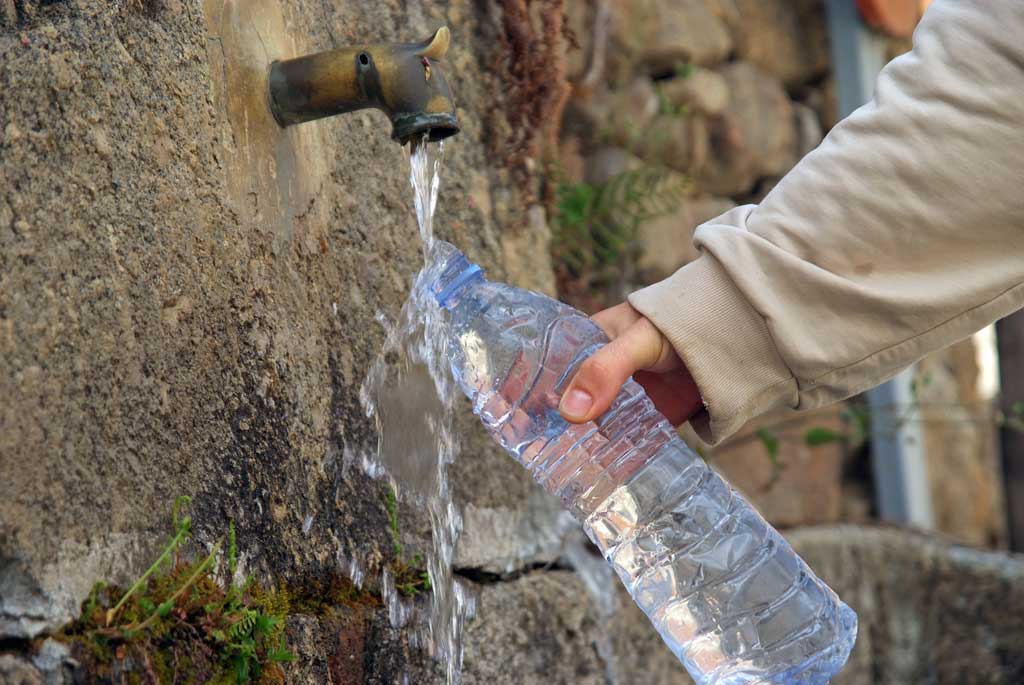Italian water springs for sale

Italy is rich in natural water springs, hidden in suggestive places and surrounded by pleasant and relaxing landscapes, to be discovered by walking and observing the natural elements.
And water spring is a respectable business as well!
We have for sale in various Italian regions several sources of active, still or disused water, with a small and large flow.
Some sources boast known commercial brand with interesting turnover, others are closed due to bankruptcy but – once restored – can give a lot of satisfaction.
If interested, send a non-binding letter of intent with the potential buyer datas.
Italian mineral waters: classification
To choose a mineral water that suits your needs, it is important to know how to read the label and know the meaning of some terms.
FIXED RESIDUE is one of the first thing to check on the label and expresses the amount of dissolved salts in a liter of water. It is conventionally calculated at 180°C and its value is generally reported in milligrams per liter (mg/l).
As defined by Legislative Decree 25 January 1992, n. 105, the marketable mineral waters can be classified into the following categories based on the fixed residue:
– minimally mineralized waters, with a fixed residue at 180°C below 50 mg/l
– low-mineralized (or slightly mineralized) waters, with a fixed residue between 50 and 500 mg/l
– mineral waters, with a fixed residue between 500 and 1500 mg/l
– waters rich in mineral salts, with a fixed residue exceeding 1500 mg/l
For waters whose fixed residue is between 500 and 1500 mg/l the decree does not provide further indications of nomenclature.
The same decree also provides for other categories, based on the concentration of specific mineral salts:
– bicarbonate water, if the bicarbonate is higher than 600 mg/l
– sulphate water, if the sulphates are higher than 200 mg/l
– chlorinated water, if the chloride is higher than 200 mg/l
– calcium water, if the calcium is higher than 150 mg/l
– magnesium water, if the magnesium is greater than 50 mg/l
– fluorinated water, if the fluorine is higher than 1 mg/l
– ferruginous water, if the divalent iron is higher than 1 mg/l
– acidic water, if free carbon dioxide is greater than 250 mg/l
– sodium water, if the sodium is higher than 200 mg/l
– water suitable for low sodium diets, if sodium is less than 20 mg/l
Mineral water and health
Mineral water doesn’t have therapeutic properties in itself, but it is essential to take it to meet the daily requirement of mineral salts and to stimulate the metabolism and the efficient functioning of all physiological processes that involve the use of water by the organism, such as diuresis (the process of forming urine in the kidneys).
Diuretic effect
Taking several liters of water daily produces a diuretic effect. This applies to both mineral water and aqueduct water.
However, only those suffering from particular pathologies have to drink more than necessary (reference values: between 1200 ml = 6 glasses and 2000 ml = 10 glasses). Drinking more than the reference amount is in fact useless, as excess water is excreted by the kidneys. It is also necessary to consider the individual situations: for example, drinking a lot of water in a short time can be dangerous for severely dehydrated people, while for people in normal conditions the danger threshold (several liters in a short time) is essentially impossible to reach orally.
It is also advisable to carefully read – on the label present in the bottles of mineral water – the entry relating to the hydrogen carbonate ion HCO_3 (better known as bicarbonate), since a high concentration of this element induces greater diuretic effects, even if – on the other hand – it can relieve ailments related to gastritis or stomach acid.
Properties based on the salt composition
bicarbonate water > with diuretic and digestive action; indicated in liver failure
sulphate water > with mild digestive action, slightly laxative; relaxes the hepato-biliary muscles
chlorinated water > to balance intestinal, biliary and hepatic functions
calcium water > acts on the stomach and liver; indicated in the growth and prevention of osteoporosis and hypertension
magnesium water > with laxative action and prevention of arteriosclerosis
fluorinated water > to strengthen the dental structure and prevent caries; indicated in the prevention of osteoporosis
ferruginous water > is indicated in iron deficiency anemia
acidic water > with digestive action
sodium water > with a positive action on neuro-muscular excitability; indicated in states of specific deficiencies and in sports activities
low-sodium water > suitable for low sodium diets*
*Sodium reduction
The recommended daily dose of sodium for the human body is about 2.4 grams, while it is possible to survive even with lower amounts. Taking too much sodium causes hypertension, so don’t exceed the recommended daily threshold. The reduction in sodium intake by drinking low-sodium water is considerable (excess sodium is excreted by the kidneys along with excess water), but is even greater simply by reducing the use of table salt in preparing meals and choosing food .
